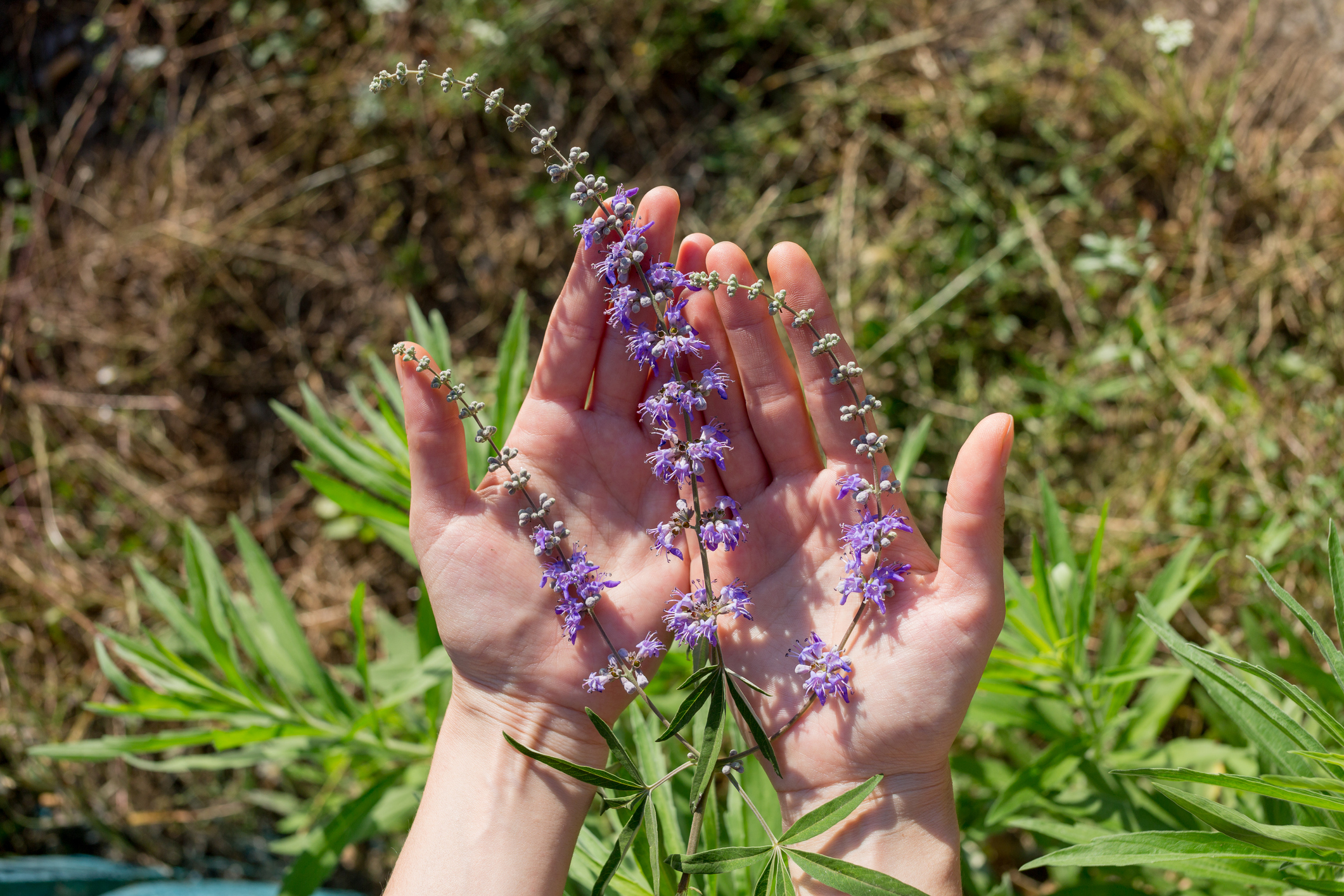Herbal Remedies to Support Your Emotional Wellness
Just being around lush leaves, flowers, and trees can evoke feelings of happiness and serenity. Tapping into the power of plants can help keep you emotionally balanced and feeling calm. From teas to tablets to tinctures, there are many ways you can utilize herbal allies to support your wellness.
I have always felt a sense of kinship with nature, plants, and fungi, even from a young age. I remember as a child, my brother kicked over a thriving mushroom patch in our backyard and I burst into tears! I believe it’s important to recognize the sense of communion we have with the natural world, and invite that feeling in when we are looking for natural remedies to help support ourselves. The more familiar we become with different plants and their uses, the more we can develop an intuitive sense, along with our practiced knowledge, of what may assist us with different moods we’d like to shift.
Plant remedies that work for you
You may find it valuable to do some research on plant remedies based on place. As someone with a family background in Britain, I enjoy finding out which indigenous plants of the British Isles have been traditionally used in supportive treatments, and tapping into that ancestral tradition. Among those, I have a few favorite plant allies such as lavender, chamomile, St. John’s wort, and rose - both petals and rose hips - that I am drawn to for lifting my spirit.
Make sure that in the course of your research, the sources you reference for each herb, as you intend to use it, are credible! Long years of use doesn’t automatically mean relevance in today’s world. Sometimes, traditional treatments would harm instead of help, such as the practice of blood-letting. However, some folk remedies have been proven with modern science, such as using willow bark to help manage fever. It was discovered that willow bark contains salicin, a precursor of salicylic acid used in aspirin, a modern treatment for pain relief and fevers.

If your cultural heritage is from elsewhere than your current home, it may be rewarding for you to discover the traditional uses of local plants in your area. I am constantly awed at the different uses for plants and berries here in the Pacific Northwest. Cedar, for example, is revered as a sacred plant by many of the indigenous nations. It has been, and is still used, for housing, clothing, storage, decoration, smudging (cleansing), food preparation, and first aid. It’s also commonly used in essential oil form for aromatherapy and has a clean, woodsy, relaxing fragrance.
Herbal remedies are available in various forms to ingest - or even apply topically, to benefit from their therapeutic aroma - and you might find some more preferable than others. I’m very fond of a steaming cup of steeped tea or concentrated herbal beverage, and even the comforting warmth can help if you’re feeling down. Tinctures can be especially effective, as the beneficial properties of plants are extracted very well via the tincture process. You can also find herbal remedies in capsule or tablet form, which is an easy and convenient way of utilizing your favorite herbal remedy.
Where to begin with herbal remedies?
If you’re not sure where to start, here are a few suggestions for some gentle herbal remedies that you might enjoy trying - I’ve included my favorites of course! That being said, there are many more options to check out, and a good rule of thumb is to introduce one thing at a time. You may want to track any changes in how you feel, to check for benefits or side effects, so do refrain from trying out too many things at once! As well, it’s always important to make sure any substance, even herbs, won’t interfere with any medication you might be taking, or any medical condition. Always check with your doctor first before using any natural supplements if you are on medications or have any health condition.
Rose
I love to include rose petals in my tea blends. Roses are linked to the heart, and their scent and flavor is delicate and soothing, thought to relieve emotional pain and bolster states of vulnerability. They’re also high in antioxidants. I often incorporate rose hips, too, especially in cold and flu season: they are rich in vitamin C and can be easily added to tea or preventative concentrates.
Lavender
Often utilized in aromatherapy for its calming effect, lavender can also be used to augment tea blends - or even added to baking! I like to keep it around especially for when I might be feeling a bit on edge during the emotional swings of PMS. Lavender has traditionally been used as a sleep aid, and sachets of dried lavender flowers can be placed under pillows or even in linen drawers for their fresh, sharply floral scent.
Chamomile
There is something exceptionally reassuring and relaxing about chamomile - which makes sense, given that it’s long-been used to assist with sleep, both quality and accessing sleep states, as well as helping to soothe anxiety. Chamomile has been used ever since becoming popular with the ancient Egyptians and Romans. Chamomile is also high in antioxidants and supports digestion as well!
Ashwagandha
This plant has been featured in the Ayurvedic herbal tradition for thousands of years and is known to be a potent adaptogen. Ashwagandha is considered to be highly beneficial for stress and anxiety, whether used alone or in combination with other powerful adaptogens to help with wellbeing and balance.
You can start at the tea aisle of your local health store, or even by growing some of the plants you’re interested in yourself! Consulting a healthcare professional such as a certified naturopath or herbalist is also a good step if you’d like professional recommendations on what remedies might benefit you. And next time you’re passing some blooms, don’t forget to stop and smell the roses!


Leave a comment